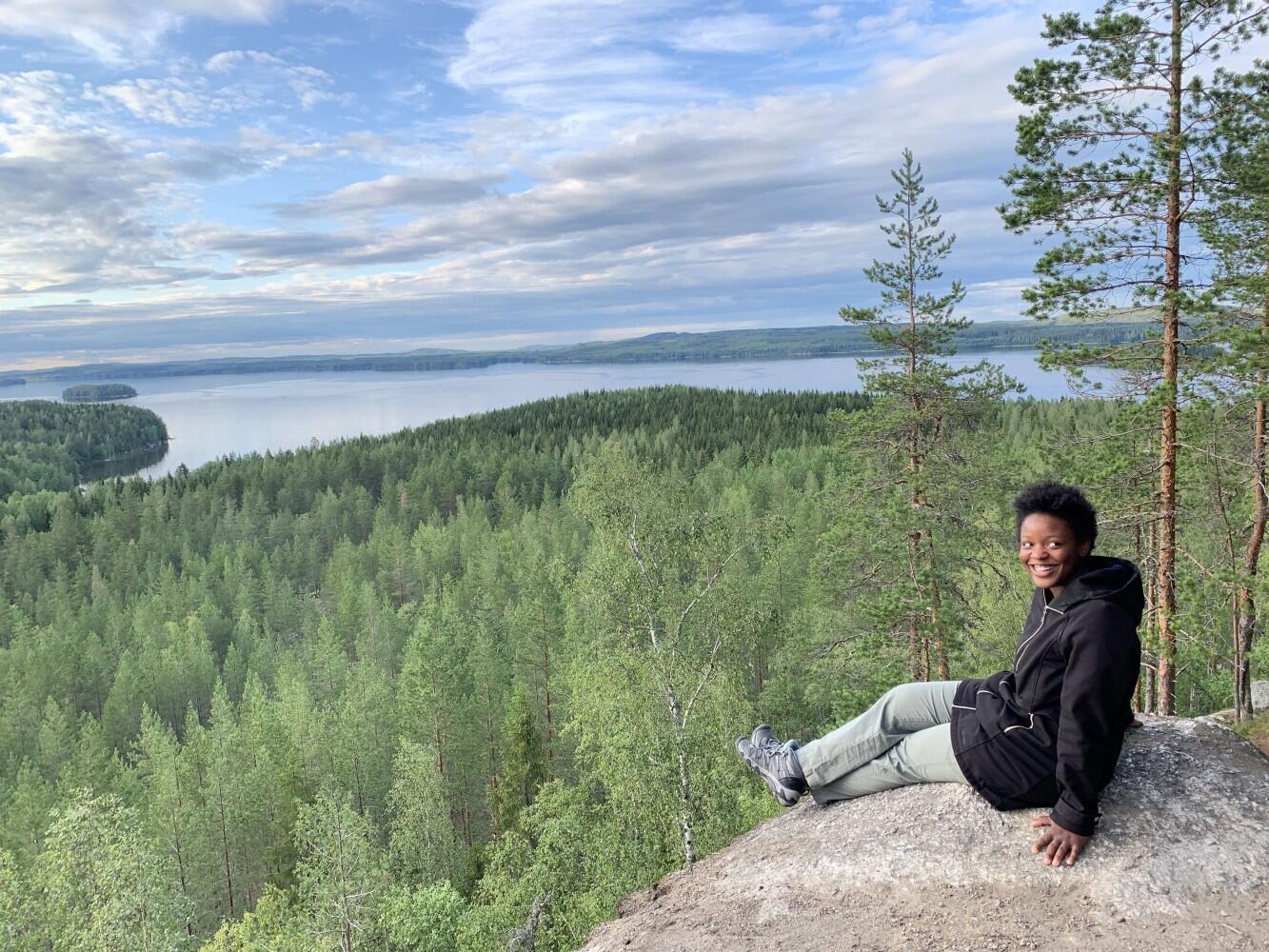ACES graduate receives Fulbright grant to study bioenergy systems in Finland

URBANA, Ill. – Jordan Blake Banks recently arrived in Finland, where she’ll begin a two-year Master’s program in bioenergy systems at the Lappeenranta-Lahti University of Technology (LUT). She is one of two 2019 graduates from the College of Agricultural, Consumer and Environmental Sciences to receive a Fulbright scholarship for continued studies.
Banks spent her first weeks abroad participating in a Finnish language and culture course. Now she’s ready to start at LUT, which offers an international Master’s program with classes taught in English.
Banks says she chose Finland because the country is a leader in the implementation of bioenergy. She wants to study what they are doing and hopes to bring her insights back to the U.S.
“Basically I’ll learn everything that one needs to make bioenergy from using a plant source to chemically and thermally converting it to fuel and then how to sell it in the marketplace,” she says.
“It just really makes sense to use plants as energy. It would be really cool if we can turn the crop residue left over after harvest into actual energy. I know it is possible; the techniques just haven’t quite been perfected yet, but we definitely need to move away from fossil fuels,” she adds.
Banks grew up in St. Louis, Miss., with two older siblings. Both of her parents are engineers, so her interest in the field was nurtured from an early age. “I grew up in a heavy math-inspired household. I was exposed to it at a young age and it fit my abilities well,” she says.
Her interest in sustainability began in elementary school, and she found a match for her passions in the Department of Agricultural and Biological Engineering (ABE). She started at the U of I as a chemical engineering student but switched to ABE in her junior year because she wanted to focus on bioenergy and the environment.
Banks says the department was a good fit for her, both in terms of research interests and because of the small size and sense of community.
“It was pretty easy to integrate in small classes of 15 or so. That allowed me to meet people and easily form study groups; everyone was really nice and willing to go to an extracurricular activity with you or do homework with you,” she says. “I did really appreciate the community within ABE, and it was also nice to hang out and do homework in the building.”
She encourages current ACES students to take advantage of opportunities to participate in different activities. For example, in spring 2018 she travelled to Puerto Rico on a disaster relief trip led by ABE professor Luis Rodriguez. She also worked as a research assistant on the “Sun Buckets” project, which focuses on collecting energy from the sun for cooking, and during her senior year she worked on a project to rebuild the department’s bioreactor.
“We are proud of Blake’s accomplishments and excited for her as she pursues her graduate studies in bioenergy systems,” says ABE department head Ronaldo Maghirang. “The international educational exchange program is an excellent opportunity accorded to few and Blake definitely deserves it.”
At the U of I Banks was a member of Women in Math, Science, and Engineering (WIMSE), a living-learning community housed in Trelease Hall, and she was a resident adviser in Trelease for three years. WIMSE provides a supportive environment for female students in the STEM disciplines. “Mostly the field is dominated by men and it can be a little intimidating sometimes. So it’s very encouraging and it was a good community,” she says.
Her advice to students who want to know more about how to apply for a Fulbright scholarship? Check out the Fulbright website for opportunities, and work with the U of I scholarship office on writing the grant. “Definitely apply for it if you’re interested. Don’t let the big Fulbright name intimidate you,” she says. “If you have some kind of passion, you can turn that into a Fulbright grant.”